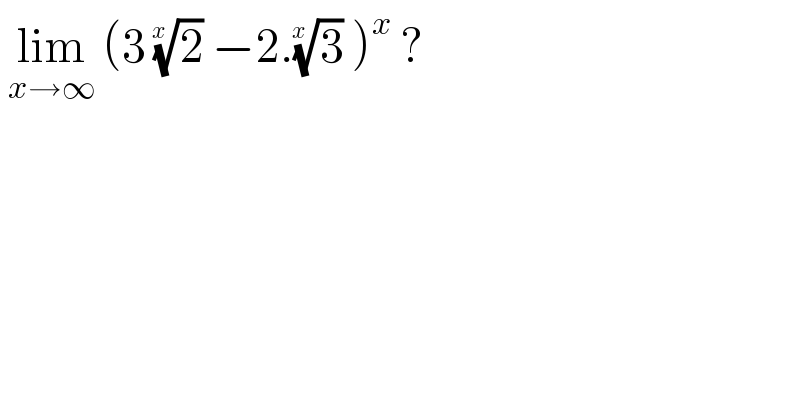
Question and Answers Forum
Question Number 120515 by john santu last updated on 01/Nov/20

Answered by bramlexs22 last updated on 01/Nov/20

| ||
Question and Answers Forum | ||
Question Number 120515 by john santu last updated on 01/Nov/20 | ||
 | ||
Answered by bramlexs22 last updated on 01/Nov/20 | ||
 | ||
| ||